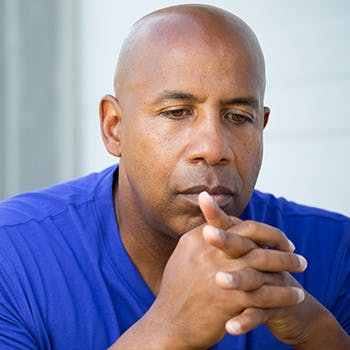Causes of Hemorrhoids

If you’re suffering from hemorrhoids, you’re not alone. Unfortunately, hemorrhoids affect as many as one in 20 Americans.1 The good news is that hemorrhoids can be prevented once you identify the root problem. Learn what causes hemorrhoids so you can treat them effectively and relieve your discomfort.
What Are Hemorrhoids?
Hemorrhoids refer to a condition where the veins in the lower rectum and around the anus are swollen, dilated and inflamed (similar to varicose veins in legs). This can result in pain, itching, irritation, burning and sometimes bleeding, which indicates a flare-up.
Common Causes of Hemorrhoids
Straining is a common cause of hemorrhoids. Any strenuous activity that puts extra pressure on your stomach and lower half can cause your rectal and anal veins to become swollen and inflamed.2 The most common causes of hemorrhoids include:2,3
- Straining due to chronic constipation, diarrhea or other bowel movements. Straining while you go to the bathroom interferes with the blood flowing to and from your anus, causing the blood vessels nearby to become swollen and enlarged.
- Sitting or standing for long periods of time. Sitting for too long without taking a break to stand up and walk around can put extra pressure on your rectal veins.
- Being overweight. Gaining weight increases the pressure and strain on your pelvis and lower extremities.
- Pregnancy or childbirth. Hemorrhoids are common during pregnancy as having an enlarged uterus can put additional strain on your lower body.
- Exerting yourself with heavy lifting. Lifting heavy weights or other objects puts a strain on your muscles and butt.
- Genetics. Hemorrhoids can run in your family.
- Waiting to go the bathroom. Delaying a bowel movement can cause your stool to dry out, causing constipation and making it harder to go to the bathroom.
- Aging. The connective tissue in the rectum and anus that supports and holds hemorrhoids in place begins to weaken with age, causing the hemorrhoids to swell and prolapse.
How Prevent and Reduce Hemorrhoids
The best way to reduce hemorrhoids is by maintaining soft stools so you don’t need to strain on the toilet. Keep your bowel movements regular with these tips and lifestyle changes:3
- Eat fiber-rich foods. Fiber helps soften your stool and increase its bulk, making it easier to pass without strain. Fibrous foods include fruits, vegetables and whole grains. When increasing your fiber intake, start slow and drink water to avoid digestive upset.
- Try a fiber supplement. If you’re struggling to eat enough fiber—20 to 30 grams daily—try adding a fiber supplement. Studies suggest that fiber supplements may even reduce symptoms and bleeding associated with hemorrhoids. Remember to drink at least eight glasses of water a day to digest the fiber properly.
- Drink plenty of water and other fluids. Fluids keep your stools soft and allow them to pass easily.
- Live an active lifestyle. Sitting or standing for a long time puts extra strain on your butt. Conversely, moderate exercise helps regulate your bowels.
- Go when you get the urge. To prevent constipation, don’t delay a visit to the bathroom when you need to go.
- Don’t linger on the toilet. Sitting on the toilet for too long increases the pressure on your anus and veins.
- Avoid straining. Don’t push too hard when you go to the bathroom, as this can be taxing for your lower rectum.
- Use the right products. If you need fast-acting relief from your pain, Preparation H has the products for you. Browse our selection of gels, creams, sprays, ointments and wipes.
Now that you know what’s causing your hemorrhoids, you can make small adjustments to your lifestyle to prevent them. For more information on how to reduce the risk of hemorrhoid flare-ups, visit our healthy living blog.



